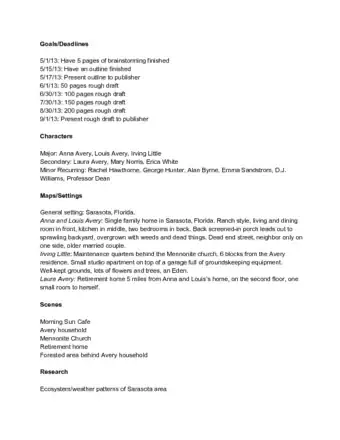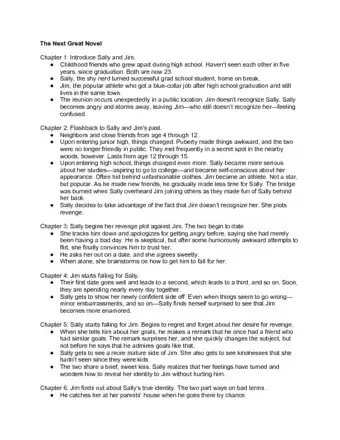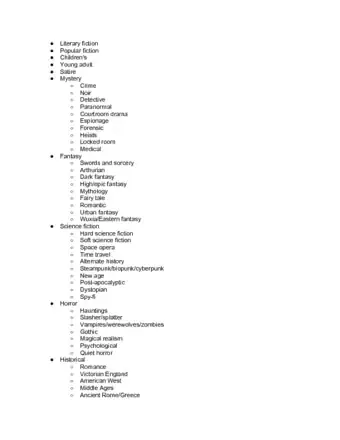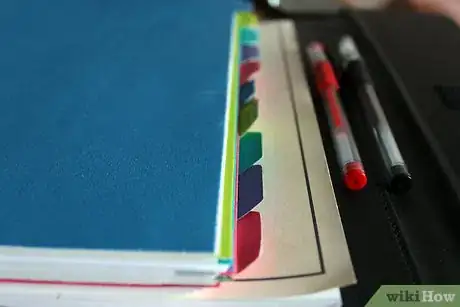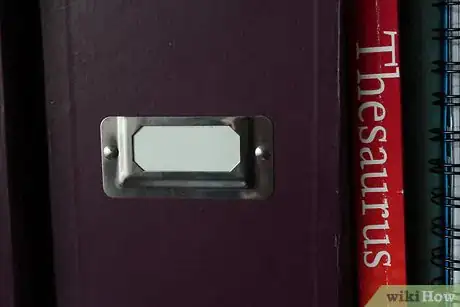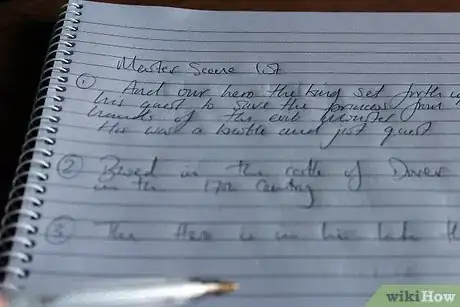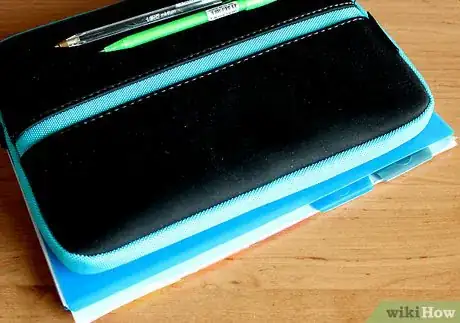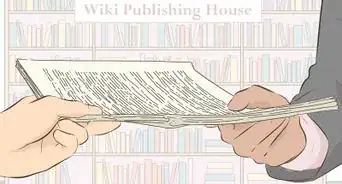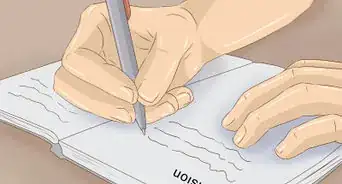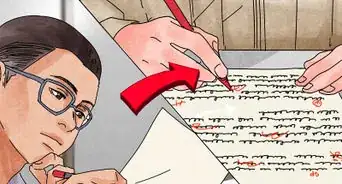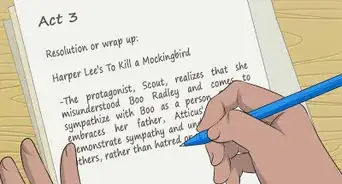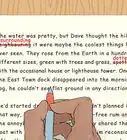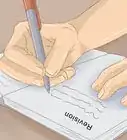X
wikiHow is a “wiki,” similar to Wikipedia, which means that many of our articles are co-written by multiple authors. To create this article, 32 people, some anonymous, worked to edit and improve it over time.
This article has been viewed 344,721 times.
Learn more...
It doesn't matter whether you plan on writing a literary novel, a genre piece, or a semi-autobiographical book; the sheer mass of paperwork can accumulate quickly if you don't plan ahead and organize as you go. However, with the help of this article, that won't be a problem.
Steps
Planning Help
Part 1
Part 1 of 4:
Organization
-
1Make and label file folders. This can be done either on your computer or in physical file folders. Choose whichever one you want, or you could even use both, so you have a back-up. Make and label one file folder for each of the following categories:[1]
- Goals/Deadlines: Even if you don't have a publisher or editor breathing down your neck, it's a good idea to create personal goals and deadlines for completion. Create a master list for your folder and update both calendars if anything changes. For example, if you have an interview with a veterinarian, place that on the calendars and review your master list as to how that alters your goals.
- Characters: One for each major, secondary, and recurring minor characters as well as another for a "master character list." If your story is one that has character "types" (such as aliens or monsters) make a folder for those as well. Think of characteristics and personality of your character
- Maps/Settings: Not just for large scale settings (such as a "story world" map so you can differentiate between galaxy sectors in a sci-fi tale or which neighbor lives next door to the other one) but for each major household so you don't have your main character with the master bedroom on the first floor in one chapter, and then five chapters later it's on the second or third floor.
- Scenes: One for your "Master Scene List" (see tips) for a quick overview and one for each scene in your novel. You may eventually wish to combine scenes into chapter sections, but until you're sure exactly what form your novel is going to take this technique makes it easier to mix and match until the novel is solid.
- Research: Start with a list of questions on areas in your novel that you are unsure about and use secondary (encyclopedia etc.) as well as primary resources that you can frequently acquire through a few phone calls whether by using the phone book or by contacts you know from work or your personal life.
-
2Organize these files appropriately inside of the filing cabinet. File major categories (character, etc) alphabetically and then by sub-categories (specific characters). If you're doing this on your computer, do the same thing - make one large folder with your novel title, and then inside of that, make many smaller folders.[2]Advertisement
-
3Assure that the research materials you'll need are conveniently located. Have dictionaries, thesauruses, books, etc. on hand so that you don't spend an hour looking for them should you need them while writing your book.
Advertisement
Part 4
Part 4 of 4:
Brainstorming Ideas
-
1Use brainstorming for ideas and for moving past blocks. Brainstorming can allow for the introduction of new ideas that weren't an original part of your plan. They can also help you get over writer's block at any stage of the writing process.[3]
-
2Brainstorm alone or with others. Go somewhere you enjoy being, such as a local coffee house with a great vibe, the beach, the woods, your favorite reading corner. It's important to feel comfortable and at peace. If you're working with a friend or group of friends, find a place where you all feel comfortable and can speak freely without feeling self-conscious.[4]
- Even when resting you can brainstorm. Lie down when you're tired and think about your novel and let the ideas run freely.
-
3Focus on the part of the story needing new ideas. Let the ideas flow freely, and don't stifle any of them. You never know which newly surfaced idea might develop further. Record all of the ideas as best you can (writing, recording on a device, filming, etc.).[5]
-
4Allow the ideas to percolate in your mind for a few days afterward. Which ideas have traction? Allow these ones to flourish and turn into real elements within your novel.
-
5Repeat as often as needed.
Advertisement
Expert Q&A
-
QuestionHow do you come up with a science fiction idea?
 Melessa SargentMelessa Sargent is the President of Scriptwriters Network, a non-profit organization that brings in entertainment professionals to teach the art and business of script writing for TV, features and new media. The Network serves its members by providing educational programming, developing access and opportunity through alliances with industry professionals, and furthering the cause and quality of writing in the entertainment industry. Under Melessa's leadership, SWN has won numbers awards including the Los Angeles Award from 2014 through 2021, and the Innovation & Excellence award in 2020.
Melessa SargentMelessa Sargent is the President of Scriptwriters Network, a non-profit organization that brings in entertainment professionals to teach the art and business of script writing for TV, features and new media. The Network serves its members by providing educational programming, developing access and opportunity through alliances with industry professionals, and furthering the cause and quality of writing in the entertainment industry. Under Melessa's leadership, SWN has won numbers awards including the Los Angeles Award from 2014 through 2021, and the Innovation & Excellence award in 2020.
Professional Writer Take a look at something basic, like a car, and see what you can do with that car to take it to another level in the sci-fi world. How can you make it so that it'll fly using a technique not seen in the world of TV today? What extra parts or tools can be added to that car? Will it still use gas or some new invention that you create using your imagination? Is that car space-worthy?
Take a look at something basic, like a car, and see what you can do with that car to take it to another level in the sci-fi world. How can you make it so that it'll fly using a technique not seen in the world of TV today? What extra parts or tools can be added to that car? Will it still use gas or some new invention that you create using your imagination? Is that car space-worthy? -
QuestionHow do you get inspiration for my story?
 Community AnswerThat's easy. You have to keep your eyes and ears open all the time. Maybe keep a little notebook with you so you can record words, sentences, and paragraphs you hear. You might even think of something great when you least expect it.
Community AnswerThat's easy. You have to keep your eyes and ears open all the time. Maybe keep a little notebook with you so you can record words, sentences, and paragraphs you hear. You might even think of something great when you least expect it. -
QuestionHow many pages should I write a week?
 Community AnswerThat is really up to you - some people have a lot of free time and others don't. If you have a lot of free time to write, then you could write 3 pages per day (the daily page-count from NaNoWriMo), but if you don't have a lot of free time, then you should maybe just focus on writing 3 pages per week.
Community AnswerThat is really up to you - some people have a lot of free time and others don't. If you have a lot of free time to write, then you could write 3 pages per day (the daily page-count from NaNoWriMo), but if you don't have a lot of free time, then you should maybe just focus on writing 3 pages per week.
Advertisement
Warnings
- It is very easy to get stuck in the planning phase of writing your novel. If you find yourself doing this, step back and remind yourself of your ultimate goal and prioritize. For example, if you only have ten or so folders to begin with, just write out the major categories and worry about sub-folders later.⧼thumbs_response⧽
Advertisement
Things You'll Need
- File folders (purchasing a bulk package is highly recommended)
- Blank labels
- Hanging files
- 2-drawer filing cabinet
- Spiral notebooks
- Reference materials
- Phone book
- Dictionary
- Thesaurus
- Encyclopedia
- Book of quotations
- Tape recorder (make sure you have spare batteries, tapes, etc.)
- Various office supplies (pens, pencils, paper clips, staplers, etc)
- Tote bag or briefcase
- 2 calendars, one large for at home, the other for your "On the Go" Kit.
- Computer/laptop (optional)
References
- ↑ https://www.indeed.com/career-advice/career-development/organize-your-paperwork
- ↑ https://www.indeed.com/career-advice/career-development/organize-your-paperwork
- ↑ https://writingcenter.unc.edu/tips-and-tools/brainstorming/
- ↑ https://writingcenter.unc.edu/tips-and-tools/brainstorming/
- ↑ https://www.grammarly.com/blog/brainstorming/
About This Article
Advertisement
